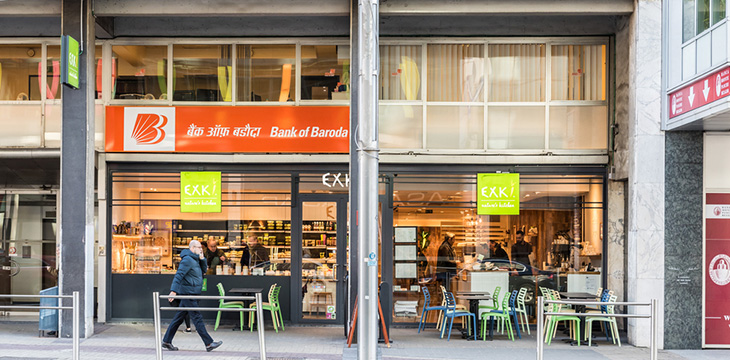|
Getting your Trinity Audio player ready...
|
Bank of Baroda, one of India’s leading public sector banks, has introduced a generative artificial intelligence (AI)-powered virtual relationship manager (VRM) to significantly improve the digital customer service experience. A relationship manager provides advice to the bank’s clients on investments and financial services on offer.
The VRM will be released to customers in phases, the lender said in a statement.
A first-of-its-kind initiative in the local banking sector, the VRM would assist customers by providing real-time information on the bank’s products and services while also identifying customer requirements for specific banking requirements. It would also help customers with basic banking services, including account statements, checkbook requests, debit card requests and interest certificates.
The VRM can also communicate in multiple languages and is accessible through video, audio and chat interfaces.
“On the bank’s 117th Foundation Day, we are pleased to launch a wide range of initiatives and offerings that promise to delight our customers across the spectrum – retail, agri and corporate banking customers,” Debadatta Chand, managing director of Bank of Baroda, said in the statement.
Founded on July 20, 1908, the Bank of Baroda is majorly owned by the national government, which holds a 63.97% stake. The lender said it serves its global customer base of about 165 million through over 70,000 touchpoints spread across 17 countries on five continents and through its various digital banking platforms.
In April, Prime Minister Narendra Modi said that new technologies like artificial intelligence (AI) and blockchain have completely changed banking methods.
“In such a situation, we need to think about the changes that will be required in the country’s banking sector and its structure. We may need new financing, operating, and new business models,” Modi said while speaking at the 90th-anniversary celebration of the Reserve Bank of India (RBI).
Modi also stressed the need for RBI to plan and chart a path for the future trajectory of the banking system to support the country’s growth aspirations in the next decade.
Credit line on UPI
Bank of Baroda has enabled the credit line feature on the Unified Payments Interface (UPI) for customers. Launched in 2016, UPI has become popular as a single mobile application for accessing different bank accounts. It has expanded to United Arab Emirates, Peru, Mauritius, Sri Lanka, Singapore, France, Bhutan and Nepal, processing over 13 billion monthly transactions.
In the beginning, Bank of Baroda would allow the UPI credit line feature on the Baroda Kisan Credit Card (BKCC), so that BKCC customers can seamlessly access a pre-sanctioned credit line on UPI.
Pre-sanctioned credit lines at banks through UPI allow individuals and businesses to avail of low-ticket, high-volume retail loans. Banks can leverage advanced technologies such as data analytics and AI to identify credit line opportunities for customers and merchants engaged in UPI-based digital payments.
Baroda Kisan Credit Card customers can link their KCC (Kisan Credit Card) account to UPI and make specific merchant payments using the credit line. Credits made to the credit line on UPI will be counted as repayment toward the utilized limit.
The KCC scheme was introduced in 1998 to issue KCC to farmers based on their holdings for uniform adoption by the banks so that farmers may readily purchase agriculture inputs such as seeds, fertilizers and pesticides and draw cash for their production needs.
UPI PSP app
Bank of Baroda has also introduced an improved version of the UPI payments service provider (PSP) app, with features for easy payments such as scanning to pay, send or receive money, UPI LITE, RuPay Credit Card on UPI, and international payments. The lender said in the statement that the app will be available to customers on Android and iOS from August 2024.
Payment service providers, also known as merchant service providers or PSPs, are third parties that assist merchants in accepting payments.
The UPI PSP app would offer customers additional “Tap and Pay” contactless payment service. This method uses NFC (Near Field Communication) technology and the UPI Global Functionality, which allows customers traveling overseas to make person-to-merchant transactions in countries that accept UPI payments.
Customers can easily enable or disable the UPI Global Functionality in the app, the statement said.
In order for artificial intelligence (AI) to work right within the law and thrive in the face of growing challenges, it needs to integrate an enterprise blockchain system that ensures data input quality and ownership—allowing it to keep data safe while also guaranteeing the immutability of data. Check out CoinGeek’s coverage on this emerging tech to learn more why Enterprise blockchain will be the backbone of AI.
Watch: Blockchain, IPv6, AI & 5G will pave the way for the new Internet

 02-21-2026
02-21-2026 




